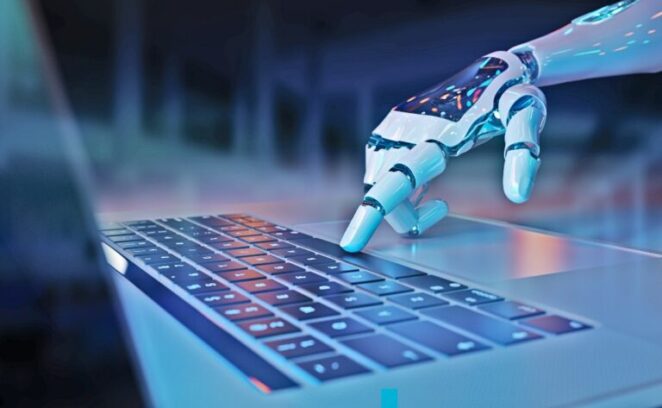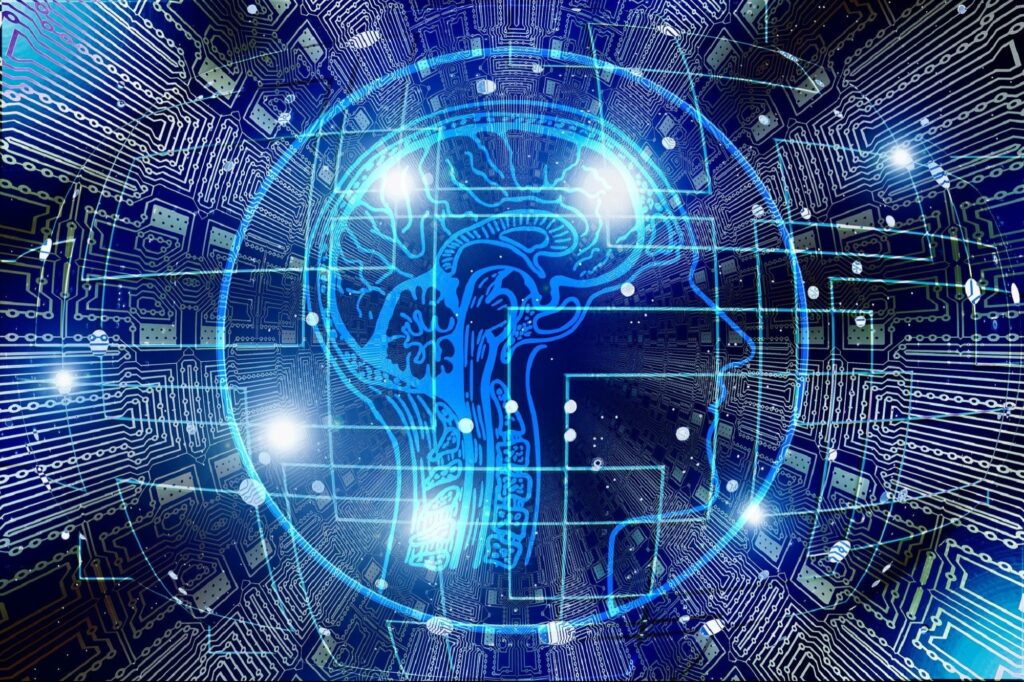Artificial Intelligence (also AI) has quickly become one of the most fascinating and talked-about technologies in recent years. From voice assistants like Siri and Alexa to self-driving cars, AI is transforming various industries and revolutionizing the way we live our lives. But what exactly can AI be used for?
Below, we will explore some of the exciting applications of AI across different sectors, such as eCommerce, education, robotics, and even cryptocurrency trading. Get ready to dive into a world where machines think and learn just like humans – it’s time to unlock the limitless possibilities of artificial intelligence! So sit back, relax, and let’s explore the incredible ways that AI is shaping our future.
What Can AI Be Used For? Main AI Applications

I. AI Application in eCommerce
In today’s digital age, artificial intelligence (AI) has revolutionized the way we shop online. With advanced algorithms & machine learning capabilities, AI is being used extensively in the field of eCommerce to enhance customer experiences and boost sales.
One of the key applications of AI in eCommerce is personalized product recommendations. By analyzing user data like preferences, browsing history, and purchase behavior, AI algorithms can suggest relevant products to individual customers. This not only helps customers find what they’re looking for more easily but also increases the chances of upselling and cross-selling.
Another area where AI shines in eCommerce is chatbots or virtual assistants. These intelligent bots are programmed to handle customer queries, provide instant support, and even facilitate transactions. They can understand natural language processing (NLP) and learn from the past to boost their responses over time.
Additionally, AI-powered image recognition technology plays a crucial role in eCommerce by allowing users to search for products using images rather than keywords. This enables shoppers to find exact or similar items with just a photo upload or screenshot.
Moreover, AI-enabled inventory management systems help retailers optimize stock levels based on demand forecasting models. By analyzing historical data patterns and external factors like seasonality or trends, these systems minimize overstocking or understocking issues while ensuring efficient order fulfillment.
Furthermore, AI-driven pricing tools analyze market dynamics by monitoring competitors’ prices, demand fluctuations, and other variables to determine optimal pricing strategies that maximize profits without sacrificing competitiveness.
Lastly, yet importantly, fraud detection algorithms powered by AI have become vital for minimizing online payment fraud. These sophisticated algorithms can swiftly identify suspicious activities based on various parameters, such as location mismatches or unusual transaction patterns, before any financial damage occurs.
II. AI Application in Education

Artificial Intelligence has began revolutionizing education by enhancing teaching and learning experiences. One key applications of AI in this space is personalized learning. With AI-powered algorithms, educational platforms can analyze individual student data and provide customized learning paths tailored to their specific needs and strengths.
Additionally, AI can assist teachers in creating engaging content and assessments. For example, AI chatbots can answer students’ questions promptly, providing them with immediate feedback and support. This saves time (for teachers) and also ensures students receive timely assistance when needed.
Moreover, AI-powered virtual tutors can simulate one-on-one interactions with students, helping them practice skills or review concepts at their own pace. These virtual tutors can adapt to each student’s unique style of learning and provide targeted feedback.
Furthermore, AI technology enables automated grading systems that can evaluate assignments and exams efficiently while maintaining accuracy and consistency. This allows teachers to focus more on analyzing student progress rather than spending hours on grading tasks.
AI technology also powers tools like Ai help’s tool, giving teachers an efficient method to ensure the integrity of students’ work.AI technology also powers tools like A*help’s tool, giving teachers an efficient method to ensure the integrity of students’ work.
III. AI Application in Robotics

Robots have long been a fascination for humans, and with the advancements in AI technology, they are becoming more intelligent and capable than ever before. AI is revolutionizing the field of robotics by enabling machines to perform complex tasks autonomously. From manufacturing to healthcare, robots are being used in very many industries currently to boost productivity and efficiency.
In manufacturing plants, AI-powered robots can handle repetitive tasks with precision and accuracy. They can assemble products on assembly lines at a much faster rate than human workers. This not only increases production output but also reduces the chances of errors.
In healthcare, robots equipped with AI algorithms can assist surgeons during complex surgeries. With their precise movements and real-time data analysis capabilities, these robots enhance surgical precision and minimize the risk of complications.
AI-powered drones are also being widely used for surveillance purposes. These autonomous flying machines can navigate through challenging terrains and capture high-resolution images or videos for security monitoring.
Moreover, AI has enabled the development of social robots capable of interacting with humans on basic and emotional levels. These robotic companions provide support to individuals suffering from loneliness or mental health issues by engaging in conversations or playing games.
The possibilities for using AI in robotics are endless. As technology advances rapidly, we can expect even more innovative applications that will transform our lives in ways we cannot yet imagine.
IV. AI Application in Trading with AI-powered Auto-trading Apps in Bitcoin Trading

AI has revolutionized the world of trading, especially in the realm of cryptocurrencies like Bitcoin. With the emergence of AI-powered auto-trading apps (ex. Bitcoin Profit), traders now have access to advanced algorithms that can analyze massive amounts of data and make swift decisions based on market trends.
These AI-driven apps use machine learning techniques to continuously learn from past data and adapt their strategies accordingly. They can monitor multiple markets simultaneously, identify patterns, and execute trades with precision and speed that is beyond human capabilities.
One key advantage of using AI in Bitcoin trading is its ability to remove emotions from decision-making. Human traders are often influenced by fear or greed, leading to irrational choices. However, AI remains objective and unaffected by such sentiments.
Moreover, these auto-trading apps can operate 24/7 without fatigue or breaks. They react instantly to sudden market shifts and exploit profitable opportunities that may arise during odd hours when human traders are asleep.
By automating trading processes through AI technology, investors can boost their odds of placing successful trades while lowering risks associated with emotional decision-making or missing out on lucrative opportunities due to limited time availability.
Conclusion
Artificial Intelligence has revolutionized various industries, opening up a world of possibilities and transforming the way we live and work. From eCommerce to education, robotics to trading, AI has made its mark in numerous fields.
As we explore AI capabilities, the potential seems limitless. The technology holds promise for addressing global challenges like climate change or predicting disease outbreaks accurately.
While there might be concerns about job displacement due to automation driven by AI technologies, it is crucial to remember that these advancements can create new opportunities as well as enhance existing ones.




